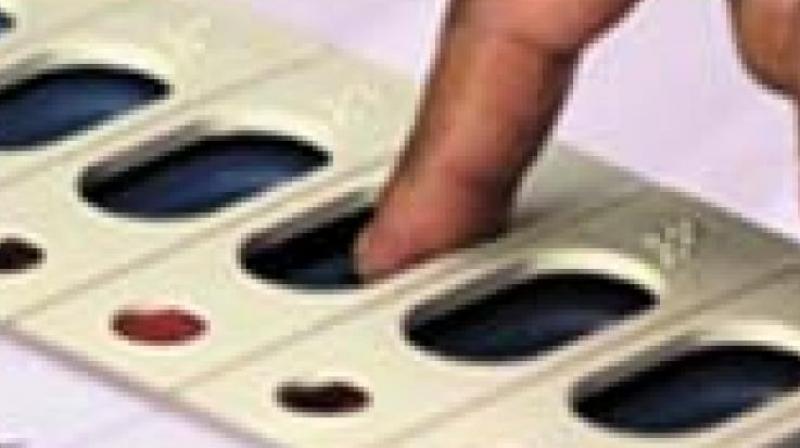Hyderabad: Ulemas in poll mood, preach right to vote
No bogus voting, impersonation is a sin, Muslims told.

Hyderabad: To vote or not to vote the Hamletian dilemma persists for some. As the five yearly date with democracy draws near election authorities are pulling out all stops to motivate people to exercise their franchise. For a change ulemas too have jumped onto the bandwagon. Many mosques in the city now see the khateebs using the Friday sermon to enlighten the Muslim community on the importance of voting.
Ulemas are taking pains to explain the importance of taking part in the electoral process especially at a time when minorities are being targeted at every level. Choosing leaders of honesty and integrity is the need of the hour, they feel. “Vote is both our strength and need and staying away from elections is nothing but foolishness,” says Mufti Syed Ibrahim Husami who has authored a book on elections and importance of voting. The 130-page book, which discusses various aspects of elections in the light of the Shariah, is doing brisk business in mosques and the other bookstores. It is only once in five years that one gets the chance to play a kingmaker and throwing away this opportunity makes no sense, the Mufti says.
Everything may be fair in love and war but not in elections. The Shariah says a big ‘no’ to bogus voting, impersonation and voting by underage persons. A Muslim woman can’t masquerade as someone else’s wife and vote. These are sinful acts and prohibited in Islam. Should one vote for a Muslim candidate or a non-Muslim? What is the ruling for a woman who is in ‘iddat’ (period of waiting after the death of her spouse or after divorce). Can she go out and vote? A number of such questions are rankling in the mind of the ummah (community). Find answers to all these in the light of Quranic injunctions and prophetic sunnah (traditions) in the book — Vote aur Inteqabaat, Ahmiat o Zaroorat — answers this book.
The Mufti discourages voting on religious lines. Candidates who best serve the interest of the community should be chosen irrespective of their religion.
Making out a strong case for voting, ulemas say not doing so is ‘haram’ (forbidden) since voting is essentially a testimony in Islam. And testimony has to be given when the occasion arises. The way giving false testimony is a major sin so is voting in favour of an unworthy candidate. Vote is also a trust and returning it to the correct person is necessary. Under no circumstances it should be cast for monetary benefit or under duress to an unworthy candidate, they argue.
Religious scholars dispel the notion that politics and religion are two different things. Politics is very much part of Islam, they say and list out examples of prophets holding the reins of administration. The book discusses at length such key topics as vote under the Shariah, its importance, whom to vote, electoral process. It also cautions contestants against indulging in character assassination of their opponents and resorting to unfair practices to win.
Except for those in ‘iddat’, there is no bar on Muslim women to vote. But getting women out to vote is a task. Traditionally they are much less inclined than men to vote. For the first time the election machinery is also making use of the women SHGs to enlighten the fair sex on the need to vote. They are particularly being deployed in the old city of Hyderabad.
A campaign vehicle with Urdu language EVM-VVPAT ( voter verifiable paper audit trail) machines is going round the congested lanes of the Old City. The SHG members go door-to-door to meet the women inmates and encourage them to exercise their franchise.

